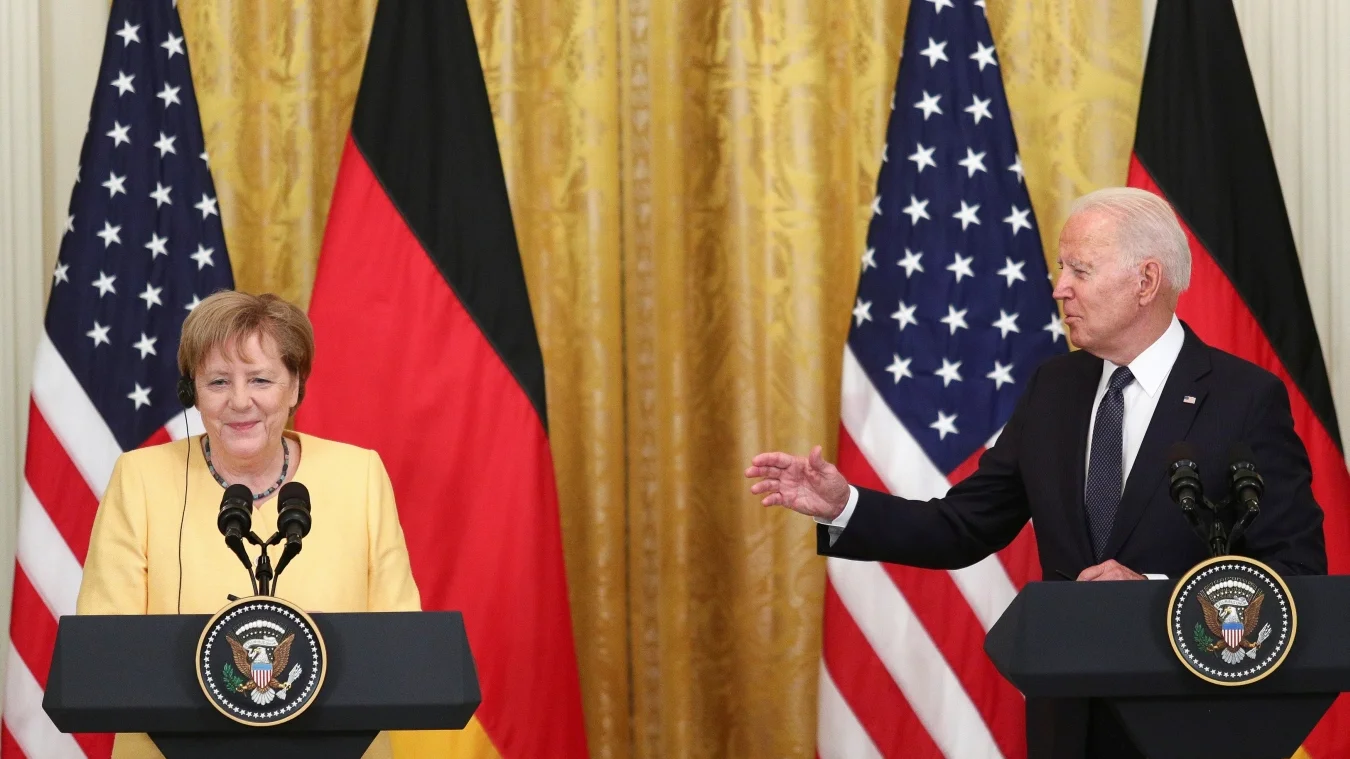
Joe Biden’s administration is repairing the worst damage from the Trump years, but the fact remains: America and Europe, this is no longer a given.
When the departing chancellor of Germany talks with the sitting U.S. president about a shared future, one must wonder what the half-life of their agreements is. That has little to do with the coming change of government in Germany, although the transition does contribute some unpredictability. The problem lies primarily with the U.S., where the trauma of the last four years has in no way evaporated. On the contrary, Donald Trump’s poison is still present in the country’s political nervous system.
During 16 years in office and in the period before that, Angela Merkel has encountered very different versions of the United States. Those situations have shown that the U.S. may be a European power in good times and bad, but it is also a power that, from a European perspective, is not always predictable. The leadership in Washington is much more dependent on national opinion with respect to their foreign policy than it was 20 years ago. And the decisions it often makes so spontaneously and decisively – withdrawal from Afghanistan or the Trumpian attacks on Europe, for example – reveal themselves upon closer inspection to be just plain reckless, or at least not well thought out.
Thus, it is no wonder that in her legendary “beer tent speech” in Trudering in 2017, Merkel resolved to seek more European and Germany autonomy, because “the times when we could rely completely on others are over to a certain extent.” (In fact, after the Taormina Group of Seven summit of major industrial nations, she had to distance herself as quickly as possible from the time bomb that was Trump before the opposition could chain her to it.) But is this autonomy even possible? To what extent can one still rely on the U.S.?
There Never Was Blind Trust between the Partners
Joe Biden just traveled through Europe like a bachelor going courting. Biden said that more soldiers will be stationed in Germany; economic barriers will be taken down; and the U.S. is resuming participation in the Paris climate agreement. Biden’s administration is thus cleaning up the worst of the damage that Trump caused. But then the real work starts, and neither Biden’s trip nor Merkel’s visit can hide the fact that the trans-Atlantic rift is considerable and attempts to bridge it are insufficient.
The question can also be asked in reverse: To what extent can one rely on Germany, on Europe? That is relevant especially with respect to the two major subjects of Russia and China, where the problem starts at the top: The U.S. and Europe (and here Chancellor Merkel especially) read these countries differently; in the degree of rivalry, the estimation of malice, and the ability to influence them when it comes to normalizing relations. The White House and the German Federal Chancellery are leaving a visible gap that can, of course, be exploited. That will not create autonomy; it will cause problems, especially because very different strategies for dealing with China and Russia are being recommended, even within the German federal government. The Federal Chancellery is not the same thing as the Ministry of Foreign Affairs, which is not the same thing as the Ministry of Finance.
There was never any blind trust between the U.S. and its trans-Atlantic partners. But interests have changed in Washington. Europe is no longer the geopolitical magnet that automatically attracts the U.S. Just as Biden has been pursuing Europe’s affections, Germany and the Europeans must also woo Washington. At least if they can clarify beforehand what they actually want to achieve together.

Leave a Reply
You must be logged in to post a comment.